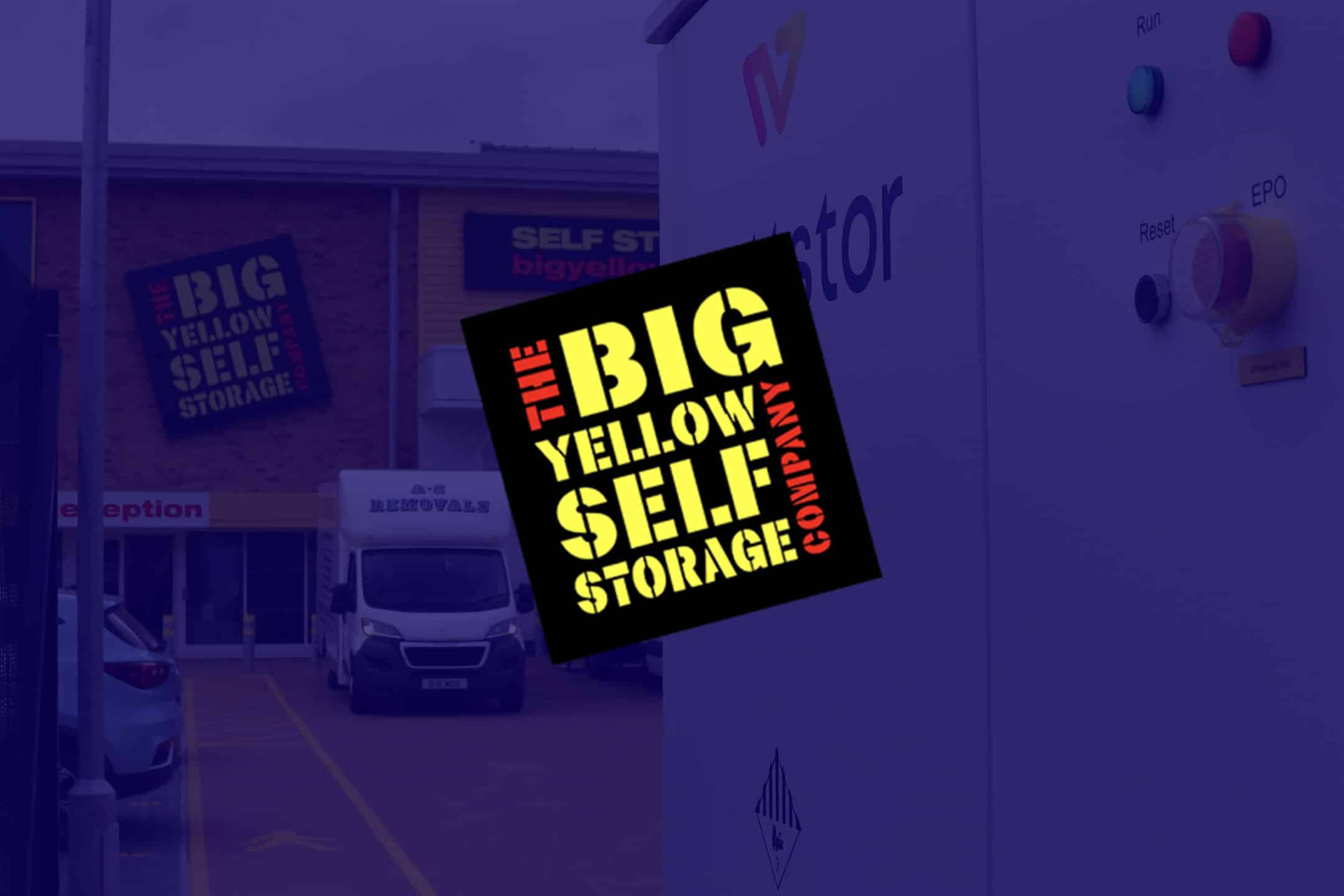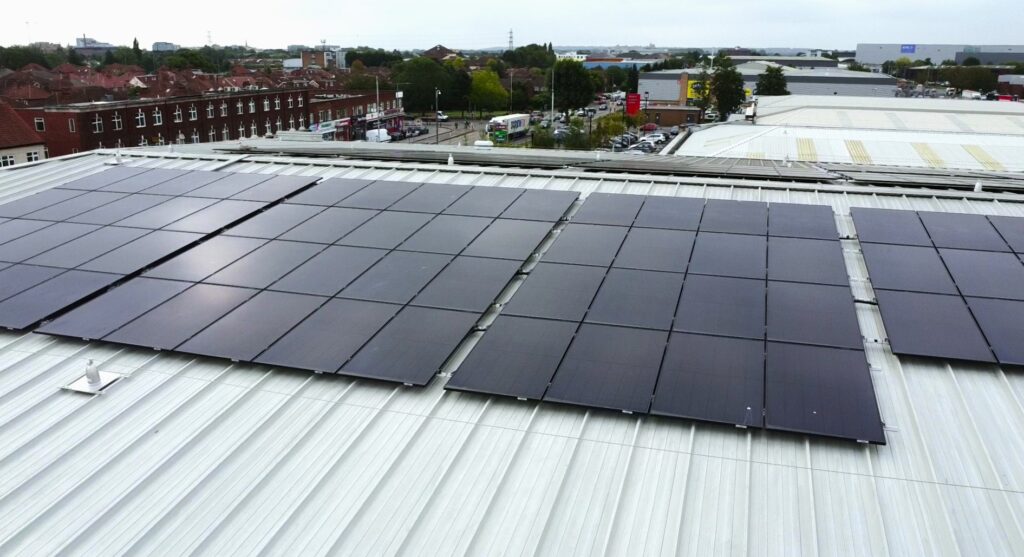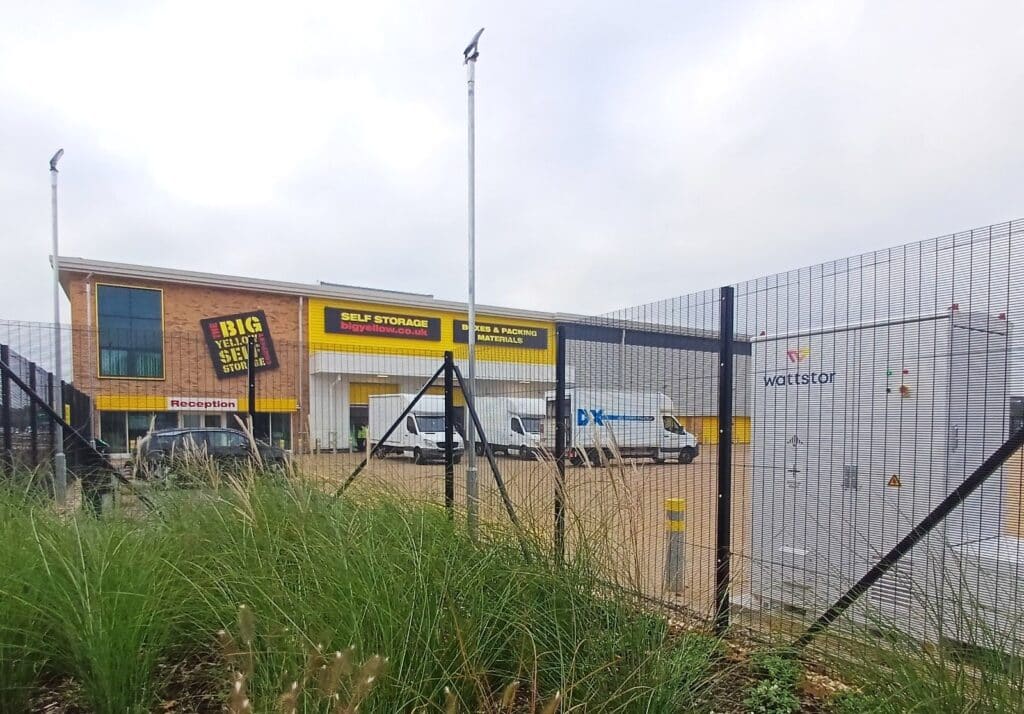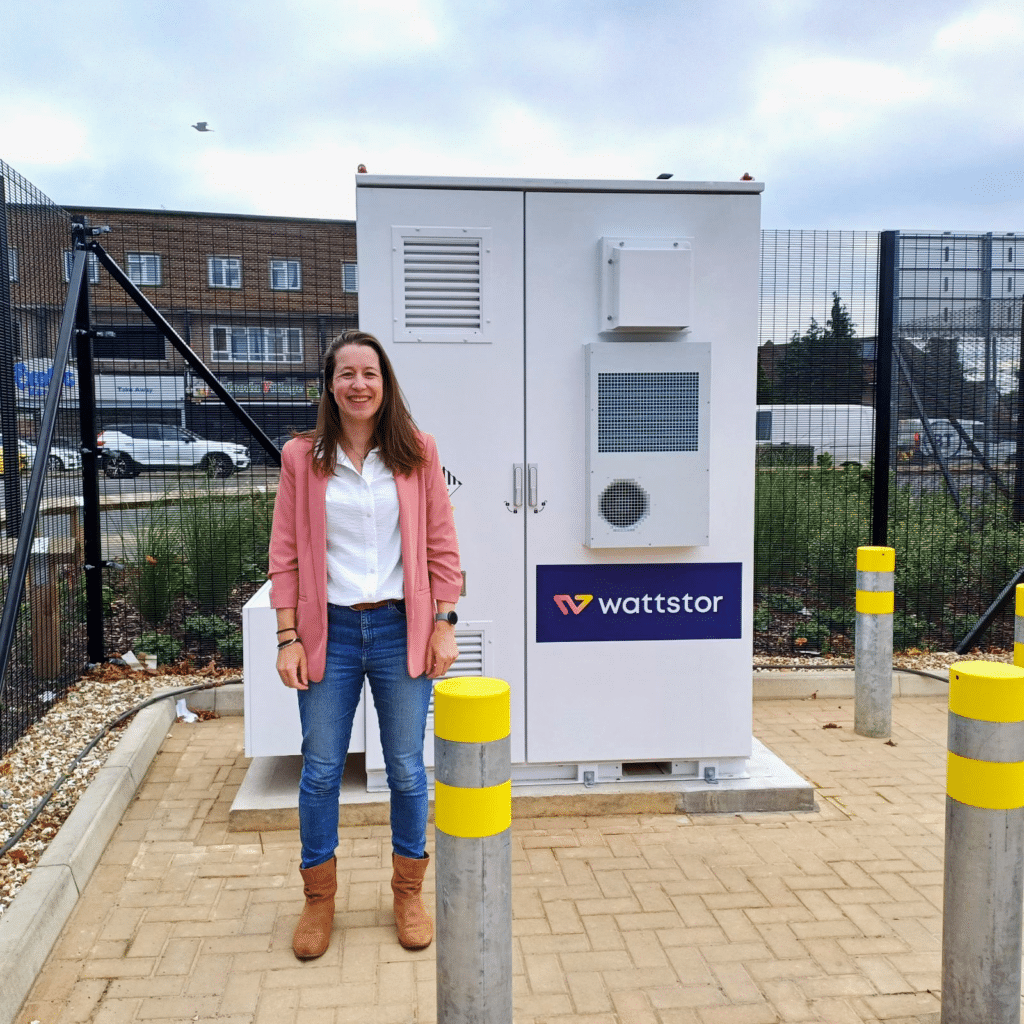Scaling up sustainability for the UK’s largest self-storage company
Founded in 1998, Big Yellow Self Storage currently has 109 stores across the UK, mostly in urban settings. With plans to further expand its operations in the near future, the company was keen to keep their carbon emissions in check.
With little heating and no HVAC system on its sites, Big Yellow Self Storage has a relatively simple energy profile and its annual energy consumption totals about 13,000 MWh. Nevertheless, the company is committed to reach carbon neutrality by 2030, and has a secondary objective of producing more power than it consumes in all of its sites.
To do that, 70 of its stores are already equipped with between 100 and 200 kW peak of solar panels, new buildings will incorporate solar right from the start, and existing buildings in the company’s portfolio are gradually being retrofitted.
The challenge: the business case for battery storage
To make the most of the solar energy generated, Big Yellow Self Storage wanted to pair its solar portfolio with battery storage to combine the benefits of load shifting solar generated on site with day ahead wholesale market trading.
A pilot project was started a few years ago using a small domestic battery. It was soon apparent that there were some operational challenges. First of all, the battery could not be optimised by a third party. Secondly the residential, single phase design did not lend itself to larger commercial applications and the associated revenue streams. Meaning that a roll out at scale would have been impossible.
As Big Yellow Self Storage was planning to open a new site in Slough, Sustainability Head, Rachael Wheeler, decided to explore different options that would allow for the implementation of battery energy storage systems (BESS) at scale. The board of Big Yellow Self Storage was supportive. However, the lack of guidance and internal expertise posed some challenges:
“Trying to figure out what our next step would be was really quite difficult. I didn’t really know what questions to ask in order to get the right answers, because I didn’t know the language to be used, and I didn’t know exactly what it was we were trying to achieve.”
To help clarify doubts and build a solid business case for battery storage, Rachael utilised Wattstor’s in-house analysts and design team to create an optimum solution.
Goals:
- Understand the energy requirements, sustainability goals, and current and future business goals of the Slough store
- Develop a bespoke energy system design
- Implement an easily scalable BESS solution
- Build a business case for the roll out of battery storage at scale
- Communicate the potential of battery storage to the board
Our approach: working as part of the team
The design and development of the energy system proceeded in parallel with the construction and set up of the Slough store. Wattstor and Big Yellow Self Storage collaborated for approximately 18 months to establish the site’s requirements. As well as design a bespoke solar and battery system. That could eventually be scaled up and rolled out to future stores. And lastly to develop a compelling business case, and help Rachael communicate this to the board in a clear way.
During this process, Wattstor helped the team at Big Yellow Self Storage understand how our technology differs from a domestic battery. As well as the various ways in which we can install BESS and their impact on the finished project.
“The team at Wattstor has been really helpful with that,” explains Rachael. “They helped me build business cases and just explain what we’re trying to do – but in far more layman terms than what you would maybe get from an engineer. This helped me greatly. It’s allowed me to explain reduction in price increase risk and also talk about some of the positive revenue streams that can come in addition to just avoiding incoming costs.”
As a result, the board decided to go ahead with a project that would allow the Slough site to self-generate almost all the electricity it would require, while opening up opportunities to trade excess solar energy on the wholesale market.
Process:
- Establishing site’s requirements
- Bespoke system design
- Development of a business case for BESS
- Support at all stages of the project to communicate the project’s scope to the board
- Installation of BESS with an outdoor cabinet container design and integrated HVAC and fire suppression system
- Installation of Podium EMS
Results: ready to roll out BESS at scale
The Slough store opened in the summer of 2024. Thanks to the combination of solar and BESS, is almost completely energy self-sufficient. Wattstor with cooperation with construction team installed 200 kW peak of solar PV on the roof. The installed battery, when fully charged, can power the site for up to ten hours.
Given the success of this pilot project, Wattstor has worked directly with Big Yellow Self Storage’s construction team to set up requirements for future new stores. All new stores will now have ducting from the control panel to a concrete plinth located five metres away from the store. This satisfies the insurer’s safety requirements, while allowing the site to deploy solar and BESS for renewable energy generation.
Big Yellow Self Storage has a rapid construction programme under way. About 15 new stores are in the pipeline in the next five to ten years. The plan is for all these stores to deploy solar and BESS at scale.
These plans are also reassuring investors and stakeholders about Big Yellow Self Storage’s ability to follow through on its net zero commitments, reinforcing the company’s position and public image.
Rachael’s advice for companies thinking of going through a similar process is clear: “Just go for it! You don’t know how things are going to change in the future. Try something small, then roll out a programme at scale. Overcome the inertia.”
Outcome:
- A compelling business case for scaled up BESS
- 200 kW peak of solar PV
- 10 hours of energy self-sufficiency from BESS alone
- Solar + BESS generating almost all the electricity required by the site
- A plan to deploy solar + BESS at scale in all new stores
Ready to think outside the grid? Get in touch with our expert team. Finding the right people to talk to is the first step towards achieving your renewable energy ambitions.
Up next...
Helping Scottish Water Horizons beat grid constraints and get closer to net zero
Contact us
Tell us about your project
Contact us
Tell us about your project
- [email protected]
- Wattstor Ltd, 21 Ironmonger Lane, London EC2V 8EY



